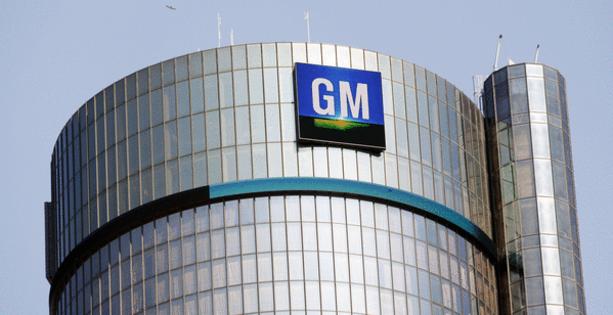GM reports strong 1Q profit but says tariffs cloud earnings guidance
Published in Business News
General Motors Co. reported strong first-quarter results Tuesday thanks in part to car buyers scrambling to avoid potential price hikes due to tariffs — a wild card causing the Detroit automaker to warn its previous guidance on profits this year should be ignored.
GM's initial guidance projected profits of $13.7 billion to $15.7 billion this year. But those estimates do not factor in President Donald Trump's tariffs, Chief Financial Officer Paul Jacobson explained: "You shouldn't rely on that."
The earnings report came as the Trump administration teased a deal to soften auto tariffs ahead of the president's planned visit to Michigan Tuesday. But a letter from Commerce Secretary Howard Lutnick touting the deal did not offer details, though the agreement is believed to ease "stacking" of tariffs and other issues important to the auto industry.
"We think news related to possible tariffs modification could buffer potential losses," said Garrett Nelson, vice president and senior equity analyst at CFRA Research.
GM is the first of Detroit's three automakers to open a window into its finances following the tariffs ordered by President Donald Trump. The impact on the auto industry remains uncertain as Trump flips between enacting pricey taxes on imported cars and granting reprieves meant to spare GM, Ford Motor Co. and Stellantis NV from higher costs on imported parts.
GM's adjusted pre-tax earnings in the first quarter hit close to $3.5 billion, and earnings per share of $2.78 outpaced analysts' expectations by 12 cents. Powered by strong performance of its core business, the January-through-March results mark yet another GM "beat" of investors' expectations.
"Given the evolving nature of the situation, we believe the future impact of tariffs could be significant," Jacobson said. "We are reassessing our guidance and look forward to sharing more when we have greater clarity."
In late March, Trump announced the 25% auto tariffs on imported vehicles, citing national security and the need for a strong domestic supply chain. Trump has said the tariffs will increase U.S. production, create well-paying manufacturing jobs and increase federal revenues to reduce taxes and pay off national debt.
But economists and the auto sector have warned that the comprehensive tariffs could be debilitating for the industry overall, especially because the multinational supply chain is so interconnected, particularly with Canada and Mexico.
Estimates for the 25% tariffs on imported vehicles that went into effect earlier this month and 25% on auto parts set to take effect May 3 put the cost of the duties in the tens of billions of dollars.
GM is handling the instability with caution. Jacobson told reporters that shifting policy is making the automaker hesitant about making major investments into U.S. manufacturing plants.
Jacobson said the auto giant is not planning any major changes in response to tariffs, with the exception of boosting truck manufacturing in Fort Wayne, Indiana, as announced earlier this month.
So far, the auto giant's reported earnings do not show major losses related to levies between January and March of this year. Sales were up 17% year over year, driven in part by consumers anxious to avoid rising price tags expected to come from tariffs.
"The industry undoubtedly benefited from some pull-ahead demand from customers purchasing vehicles ahead of potential tariffs, particularly in March," Jacobson said. "This strong demand environment has continued into April where we have seen U.S. deliveries up more than 20% vs last year."
Jacobson touted "a third consecutive quarter of sequential market share growth, a 53% increase in the sales of New Energy Vehicles," and equity income of $45 million last quarter in China. The Detroit automaker reported a rising share of the U.S. market, strong pricing and profit margins within its target range.
“Consumers contemplating a new vehicle purchase are rushing to dealers before potential vehicle pricing implications take hold,” said Chris Hopson, principal analyst at S&P Global Mobility, in a statement.
©2025 www.detroitnews.com. Visit at detroitnews.com. Distributed by Tribune Content Agency, LLC.












Comments